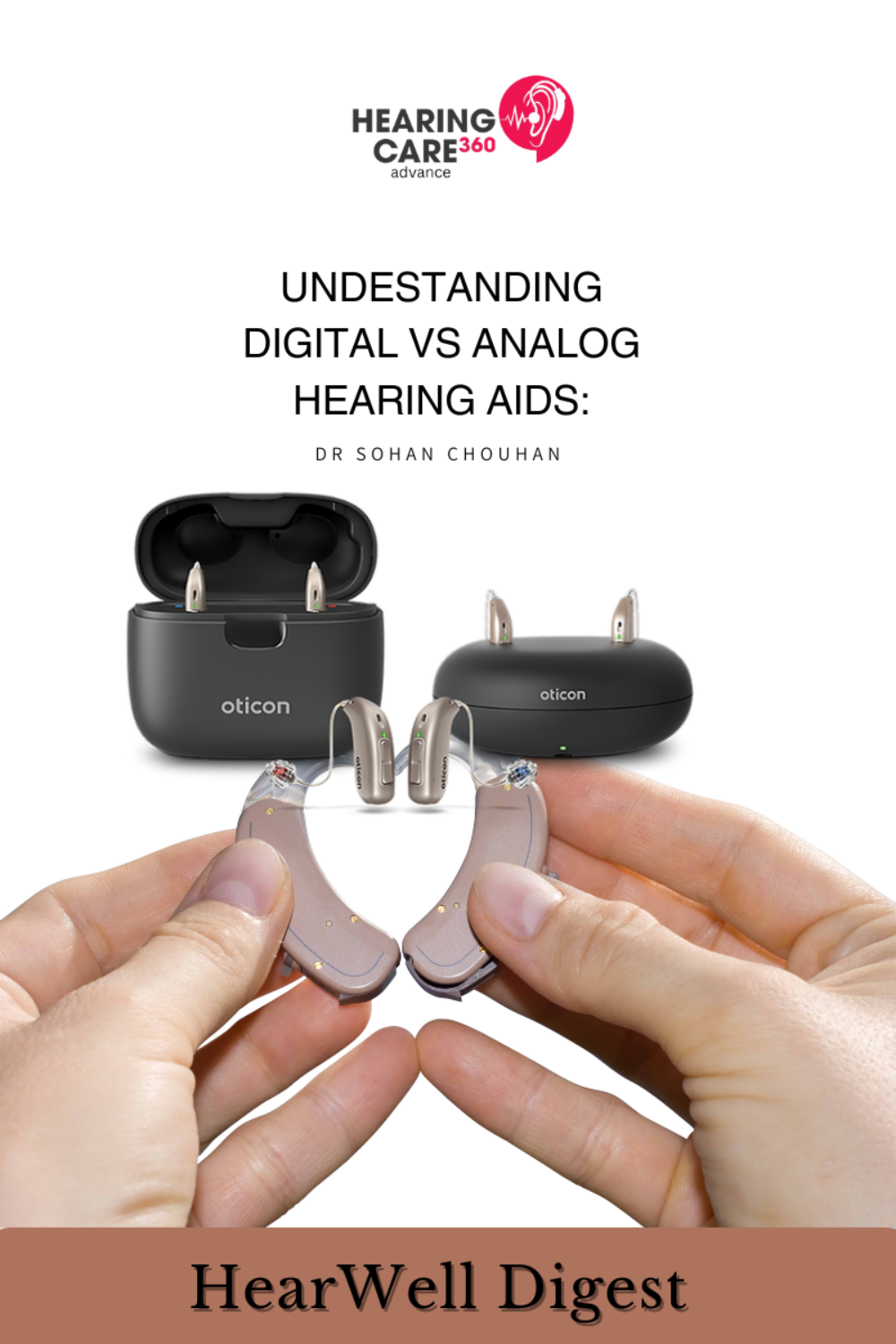Hearing aids have undergone a significant transformation with the advent of digital technology, replacing traditional analogy devices in many cases. Understanding the differences between digital and analogy hearing aids is essential for individuals with hearing loss and their healthcare providers. In this article, we’ll explore the key distinctions between digital and analogy hearing aids and the advantages of each. Analog hearing aids were the standard in hearing aid technology for much of the 20th century. These devices amplified sound waves using analogy circuitry and simple amplification settings. While analogy hearing aids were effective in improving the wearer’s ability to hear, they lacked the ability to differentiate between different types of sounds, leading to issues such as background noise interference and feedback. Digital hearing aids, on the other hand, utilize digital signal processing (DSP) technology to convert sound waves into digital signals and manipulate them in real-time. This allows for highly customizable amplification settings and advanced features such as noise reduction, feedback cancellation, and directional microphones. Digital hearing aids offer superior sound quality and clarity compared to analogy devices, making them the preferred choice for many individuals with hearing loss. One of the primary advantages of digital hearing aids is their ability to adapt to different listening environments automatically. Digital hearing aids can analyse incoming sound signals and adjust their settings accordingly to optimize speech intelligibility and reduce background noise. This feature, known as automatic or adaptive programming, ensures that wearers can hear more clearly in a variety of situations, from quiet conversations to noisy environments. Another significant advantage of digital hearing aids is their ability to reduce feedback and whistling, which can occur with analogy devices. Digital feedback cancellation algorithms analyse incoming sound signals and identify feedback frequencies, then apply precise adjustments to eliminate feedback without compromising sound quality. This feature allows wearers to enjoy clear, distortion-free sound without the annoyance of feedback noise. Additionally, digital hearing aids offer greater flexibility and customization options compared to analogy devices. Wearers can choose from a wide range of programmable settings and features to tailor their hearing aids to their specific needs and preferences. This includes options such as volume control, program selection, and fine-tuning of frequency response to accommodate different types of hearing loss.
while analogy hearing aids served as an effective solution for many individuals with hearing loss in the past, digital hearing aids offer significant advantages in terms of sound quality, flexibility, and customization. By understanding the differences between digital
By Dr. Sohan S Chouhan,
Clinical Audiologist
Hearing Care 360 Vertigo and Tinnitus Clinic,
Ahmedabad
8160351409
www.hearingcare360.com
-
Hearing aids have undergone a significant transformation with the advent of digital technology, replacing traditional analogy devices in many cases. Understanding the differences between digital and analogy hearing aids is essential for individuals with hearing loss and their healthcare providers. In this article, we’ll explore the key distinctions between digital and analogy hearing aids and…
-
We hope this newsletter finds you in good health. This week, we delve into an important topic thatconcerns both diabetes and hearing loss. Did you know that there is a significant connection betweenthese two conditions? In this article, we will explore the link, backed by research evidence, as well asprovide strategies for prevention. Understanding Diabetes…
-
Hearing aids are an integral part of daily living for those who are hard of hearing. You can hear everything around you and have simpler conversations with them. Hearing aids, like any other device, are subject to wear and tear and may ultimately stop functioning properly. Rest assured, we will assist you in determining if…
-
Have you been considering getting a hearing aid? Hearing aids provide many advantages, including enhanced cognitive function and productivity at work. Nevertheless, your regular routine will also undergo rapid changes. Some of the subtle but substantial advantages of wearing a hearing aid may have gone unnoticed by you. If you want to raise your standard…
-
The ability to convey ideas, feelings, and experiences to one another and form meaningful relationships with those around us is why communication is so important. On the other hand, not everyone is able to communicate effectively due to speech or language issues. In order to overcome these obstacles and improve one’s communication abilities, speech therapy…









